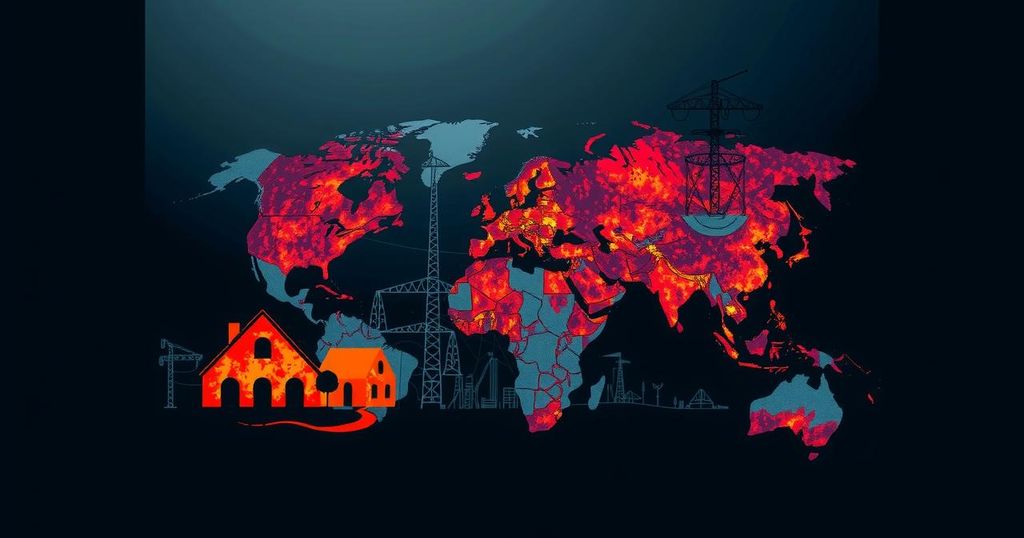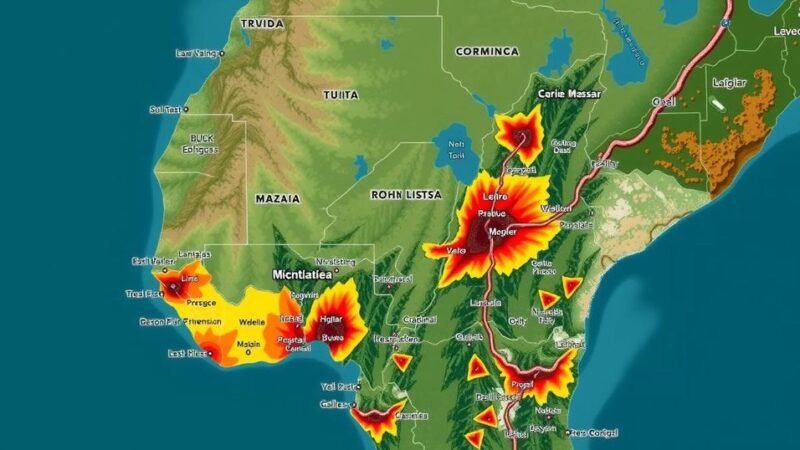The World Bank Group’s report reveals that 1.2 billion people are vulnerable to climate hazards, advocating for accelerated sustainable development to mitigate economic losses. A 10% GDP per capita increase could reduce vulnerable individuals by 100 million. Emphasis is placed on tailored, climate-informed policies for both wealthy and developing nations. The report showcases successful global adaptation examples as proof that effective climate resilience strategies foster thriving communities.
The World Bank Group’s recent report highlights that 1.2 billion people globally are susceptible to severe consequences from climate hazards, including heatwaves, floods, hurricanes, and droughts. Entitled “Rising to the Challenge: Success Stories and Strategies for Achieving Climate Adaptation and Resilience,” the report asserts that accelerated and sustainable development can substantially mitigate economic losses attributable to climate change. Notably, an increase of 10% in GDP per capita could result in a reduction of approximately 100 million individuals classified as highly vulnerable. The report emphasizes the significance of tailoring climate-informed policies that align with the unique circumstances of each nation. While wealthier countries should enhance their existing infrastructure to endure climate impacts, developing nations have the unique opportunity to construct new sustainable systems from the inception stage. The World Bank is actively addressing these issues across multiple sectors, including food and agriculture, water management, ecosystem preservation, infrastructure development, and social safety nets. To better prepare communities for climate-related shocks, the World Bank plans to implement various initiatives, such as enhanced early warning systems, improved access to insurance, and swift healthcare responses during emergencies. Furthermore, for the first time, the organization is tracking its climate interventions through a new Corporate Scorecard, which aims to serve as a benchmark for accountability and to measure its progress in combating extreme poverty while promoting shared prosperity amid a changing climate. Additionally, the report presents positive instances of climate adaptation globally. For example, India’s Ahmedabad Heat Action Plan has successfully merged early warning systems with community outreach, resulting in a significantly decreased incidence of heat-related fatalities. In Niger, the adaptive social protection system has provided financial assistance during drought periods, thereby bolstering food security. Similarly, in Bangladesh, advancements in weather forecasting have led to marked reductions in agricultural losses due to storms. Across multiple regions, private utility companies are increasingly integrating climate risks into their operational strategies, thereby ensuring stable electricity services through nature-based solutions. These examples underscore that effective and impactful climate adaptation strategies are indeed feasible, fostering resilient communities in the face of challenges.
The urgency of addressing climate change has become increasingly apparent, with millions at risk from extreme weather events. As climate hazards escalate, the need for robust adaptive measures is paramount. The World Bank Group’s report elucidates innovative strategies and successful case studies demonstrating that thoughtful investment in resilience can substantially enhance the ability of communities to withstand climate impacts, while also promoting economic growth. Such initiatives strive not only to avert disaster but also to support overall improvement in quality of life amid the evolving climate landscape.
In summary, the World Bank Group’s report delineates a clear path toward enhancing climate resilience through accelerated sustainable development and targeted policy reforms. By significantly increasing GDP per capita and fostering climate-informed strategies, countries can markedly reduce their vulnerable populations. Successful global adaptation strategies embody the potential for thriving communities in the face of climate adversity. With the implementation of systematic measures and the establishment of accountability through the Corporate Scorecard, the future for climate resilience appears promising.
Original Source: www.openaccessgovernment.org






